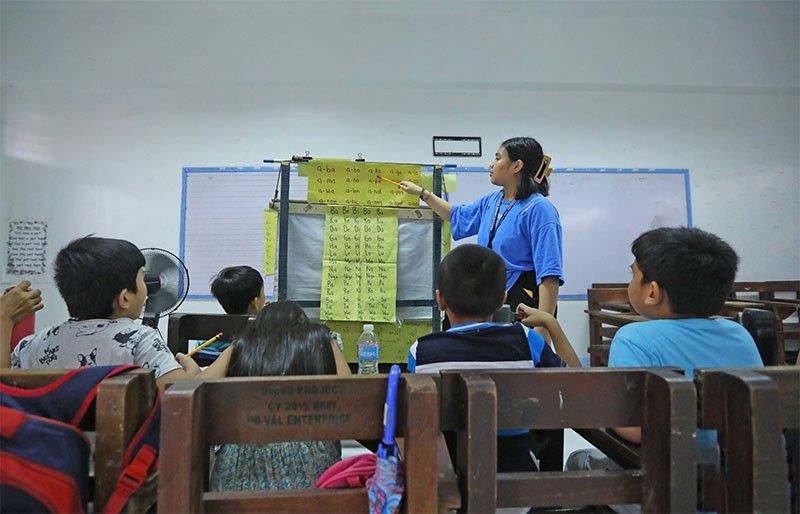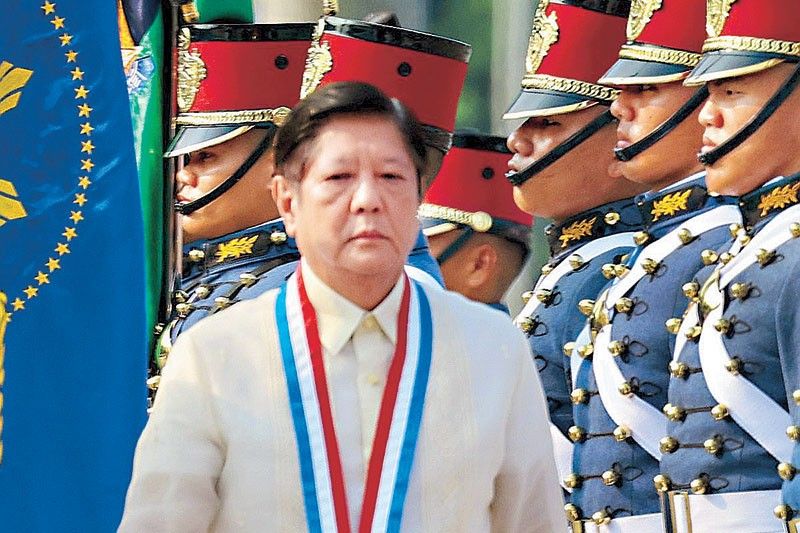
Upgrade to High-Speed Internet for only ₱1499/month!
Enjoy up to 100 Mbps fiber broadband, perfect for browsing, streaming, and gaming.
Visit Suniway.ph to learn
Keisha Ta-Asan - The Philippine Star
June 11, 2025 | 12:00am
MANILA, Philippines — A year after the ghost employee scandal at the Bangko Sentral ng Pilipinas (BSP), the two former Monetary Board (MB) members, Anita Linda Aquino and Bruce Tolentino, have not faced any charges.
The central bank confirmed that no legal action was taken against Aquino and Tolentino, as the matter now lies with the Office of the President.
BSP Governor Eli Remolona Jr. clarified that while the issue was treated with the utmost seriousness by the central bank, it was ultimately resolved through the resignation of the two board members.
“I understand that case was settled by the fact that the (former Monetary Board members) stepped down, a rather heavy penalty in itself,” Remolona told The STAR. “The matter as to the two MB members has been referred to the Office of the President, they being presidential appointees.”
The scandal, which first emerged in late 2023, involved several employees who had been absent from their posts but were still receiving salaries.
Four “ghost employees” were dismissed after internal investigations, with penalties that included the cancellation of civil service eligibility, forfeiture of retirement benefits and perpetual disqualification from holding public office.
The BSP said the administrative proceedings against the two senior staffers, who approved the falsified attendance records, were extended after new evidence was presented to challenge the charges.
Once these proceedings are concluded, the case will be forwarded to the Monetary Board for approval.
However, the fate of Aquino and Tolentino remains tied to the Office of the President, as they were appointed by the President and are not subject to BSP’s internal disciplinary actions.
Asked if he received any retirement benefits after his resignation or if the central bank continued to process his salary during the investigation period, Tolentino said: “President Marcos Jr. accepted my resignation as MB member effective 30 June 2024, upon which any relationship with the MB and BSP also ceased.”
While the resignation of the two MB members was seen as a resolution from the BSP’s side, it has sparked ongoing concerns about whether this action was sufficient to address the misconduct at such a high level.
Under the Revised Penal Code, public officers, including those in the Monetary Board, are subject to significant penalties for misconduct, particularly when it involves the misappropriation of public funds or property.
Public officials who are responsible for public funds or property and who misappropriate, take or allow others to take these funds are guilty of malversation. The penalties vary depending on the amount involved. For smaller amounts (under P200), the penalty is prision correccional in its minimum and medium periods.
For higher amounts, penalties escalate to prision mayor or even reclusion temporal in cases where the misappropriated funds exceed P12,000. Convicted individuals also face perpetual disqualification from holding public office and may be fined up to the full value of the funds misappropriated.
In response to the scandal, the BSP has introduced several reforms aimed at preventing similar issues in the future and ensuring greater accountability within its ranks. These include enhanced training for supervisors, focusing on their critical role in enforcing discipline, performance management and ethics.
The BSP has also strengthened its onboarding process for new employees, which now includes discussions about the ghost employee incident to reinforce the importance of ethics and integrity.
Additionally, the BSP has reorganized its Committee on Ethics and Decorum, which is now led by a deputy governor, providing stronger oversight on ethical issues.
The central bank is also rolling out a new human resources system that includes online submission of timesheets and supervisor approval, enhancing monitoring and accountability at every level.
A strengthened whistleblower mechanism is also being introduced to ensure that potential issues are reported and addressed promptly.
Despite the isolated nature of the issue, the BSP said it is committed to transparency and to maintaining the trust of its stakeholders. “Our processes are deliberate to comply with the Civil Service Commission rules as well as to ensure a solid case and decision.”
“We believe our stakeholders trust that we are handling this case properly and we thank them for their continued trust as we apply our usual judiciousness to this matter,” it said.
The central bank also said that the incident was handled swiftly and transparently, with internal investigations and proceedings initiated before the matter was even reported in the media.

 1 day ago
11
1 day ago
11



